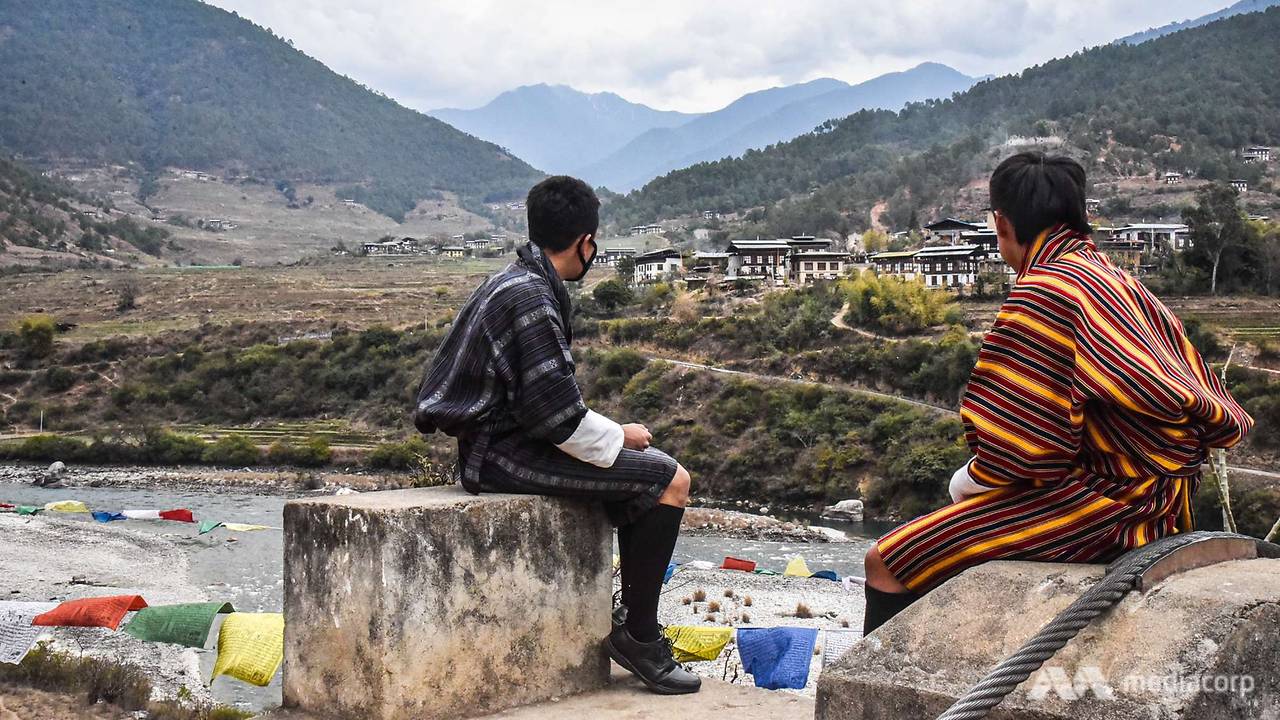BANGKOK: At a Buddhist temple south of Bangkok, a monk watches as a machine presses down on thousands of water bottles, before a giant bale of crushed plastic rolls out with a thud.
The plastic is destined to be recycled into polyester fibres, which will be made into fabric for saffron-coloured robes for monks.
Advertisement
Advertisement
The recycling temple of Wat Chak Daeng is one bright example of recycling for Thailand, one of five countries that account for more than half of plastic in the world's oceans.
The monks have crushed 40 tonnes of plastic over two years since starting the programme, aiming to curb plastic waste entering the Chao Phraya River, which flows south to the Gulf of Thailand in the western Pacific Ocean.
"I'm practicing the Buddha's teachings, which also align with solving the global environmental crisis," says Phra Maha Pranom Dhammalangkaro, 54, abbot of the temple in Samut Prakan province, just south of Bangkok.
Unlike most temples where people give monks alms like food and clothes, devotees ride bicycles here to offer plastic bags and bottles in exchange for Phra Maha Pranom's blessings.
Advertisement
Advertisement
"Donating 1kg of plastic bottles can help make a full set of monk robes, which has a high return value, both in terms of money and merits," the monk says.
The temple has produced at least 800 sets of robes, with more in production stages.
A woman sews a robe made of plastic bottles at a monastery in Bangkok, Thailand on Feb 6, 2020. (Photo: REUTERS/Soe Zeya Tun)
Each set sells for between 2,000 baht (US$65.79) and 5,000 baht (US$164.47), to keep funding the project and pay waste-sorting volunteers, many of whom are local housewives, retirees and disabled persons.
Thailand is the fifth highest contributor of plastic to the world's oceRead More – Source
BANGKOK: At a Buddhist temple south of Bangkok, a monk watches as a machine presses down on thousands of water bottles, before a giant bale of crushed plastic rolls out with a thud.
The plastic is destined to be recycled into polyester fibres, which will be made into fabric for saffron-coloured robes for monks.
Advertisement
Advertisement
The recycling temple of Wat Chak Daeng is one bright example of recycling for Thailand, one of five countries that account for more than half of plastic in the world's oceans.
The monks have crushed 40 tonnes of plastic over two years since starting the programme, aiming to curb plastic waste entering the Chao Phraya River, which flows south to the Gulf of Thailand in the western Pacific Ocean.
"I'm practicing the Buddha's teachings, which also align with solving the global environmental crisis," says Phra Maha Pranom Dhammalangkaro, 54, abbot of the temple in Samut Prakan province, just south of Bangkok.
Unlike most temples where people give monks alms like food and clothes, devotees ride bicycles here to offer plastic bags and bottles in exchange for Phra Maha Pranom's blessings.
Advertisement
Advertisement
"Donating 1kg of plastic bottles can help make a full set of monk robes, which has a high return value, both in terms of money and merits," the monk says.
The temple has produced at least 800 sets of robes, with more in production stages.
A woman sews a robe made of plastic bottles at a monastery in Bangkok, Thailand on Feb 6, 2020. (Photo: REUTERS/Soe Zeya Tun)
Each set sells for between 2,000 baht (US$65.79) and 5,000 baht (US$164.47), to keep funding the project and pay waste-sorting volunteers, many of whom are local housewives, retirees and disabled persons.
Thailand is the fifth highest contributor of plastic to the world's oceRead More – Source











